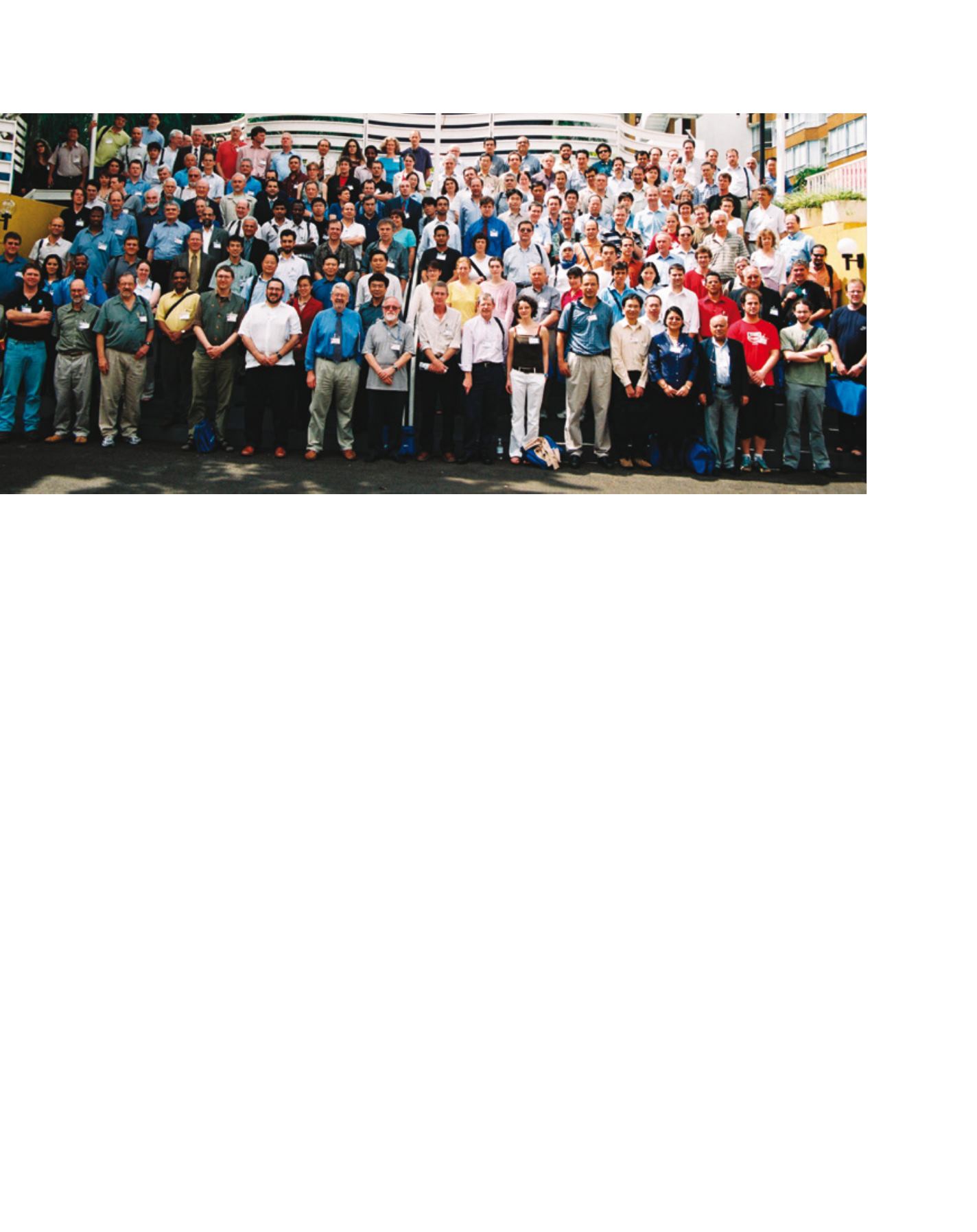

While IAHS is developing its science plan for the next
decade, UNESCO is developing the 8th Phase of the
International Hydrological Programme (IHP) covering
the period 2014-2021. The emphasis here is on water
security, recognized as a key challenge for the 21st
century. The plan envisages actions to address the need
to mobilize international cooperation to improve knowl-
edge and innovation to address water security challenges;
to strengthen the science policy interface to reach water
security at local, regional and global levels; and to develop
institutional and human capacities for water security and
sustainability. Specific aspects of hydrology and human
needs are identified in the plan: water-related disasters
and hydrological changes; groundwater in a changing
environment; addressing water scarcity and quality;
water and human settlements of the future; ecohydrol-
ogy – engineering harmony for a sustainable world; and
education as a key to water security.
It is very clear that the Panta Rhei initiative of IAHS
and the 8th Phase of the IHP of UNESCO, commenc-
ing in 2014, not only overlap in timing but also, more
importantly, coincide in purpose. IHP has, from its
inception in 1975, recognized the importance of
understanding hydrological processes as fundamental
to underpinning water resources management. IAHS
has always worked very closely with IHP (and with the
complementary programmes of WMO and IAEA and
with many of the other organizations within UN-Water)
in a symbiotic relationship. IAHS and UNESCO work
closely with governments, with national and sub-
national institutions, and with individual scientists,
practitioners and policy makers. Cooperation of this
sort and the principle of working together is of great
benefit to society at large.
mentation. The fact that hydrology is relevant to society implies the
identification of societal needs for water – for the various water uses
– as well as the threats that water poses in terms of flooding, land
degradation and droughts. Here, we need a shift in paradigms of
modern water management based on equities between demand and
supply driven activities.
Panta Rhei recognizes the feedback between each of the three
targets: improved understanding may potentially lead to more accu-
rate predictions, which helps sustainable management. However,
management itself can contribute to the cycle of understanding.
The study of change in hydrological systems and society implies
fundamental science questions that in Panta Rhei have been delib-
erately kept few and concise. They have been formulated after an
extensive consultation with members of the hydrological and water
resources community. The major science questions are:
• What are the key gaps in our understanding of change?
• How do changes in hydrological systems interact with and affect
natural and social systems driven by hydrological processes?
• How to identify and represent the occurrence and drivers of
change in hydrological systems?
• How to improve knowledge of hydrological systems including
indeterminacy assessment for improving modelling, prediction
and uncertainty estimation?
• How can we advance our monitoring and data analysis
capabilities of hydrological processes?
• How can we support societies to adapt to changing conditions
by considering the uncertainties and feedback mechanisms
between natural and human-induced changes?
The science questions of Panta Rhei are rooted in the fundamental
concepts of hydrology and are focused on society and environmental
management. They propose a compelling synthesis between basic and
applied research.
The IAHS VIIth Scientific Assembly participants, Foz de Iguassu, Brazil, 2005
Image: IAHS
[
] 324
I
nternational
C
ooperation
on
W
ater
S
ciences
and
R
esearch


















